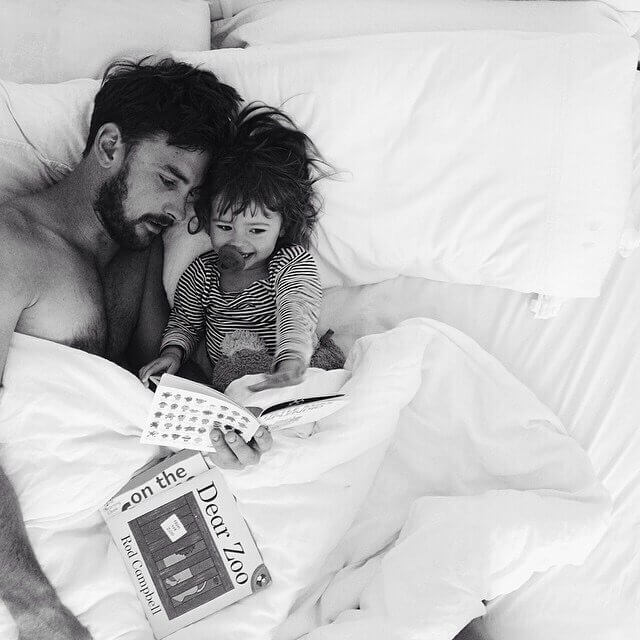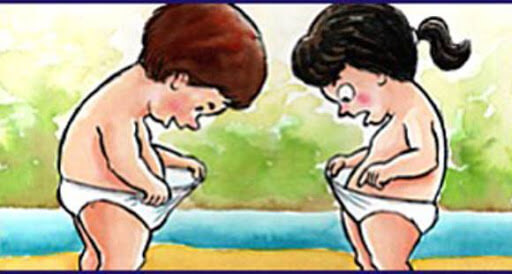Sex Education: How to Talk to Your Children about Sex?

For years, sex education has been a somewhat taboo subject and something that parents feel ashamed to talk about at home.
The word “sex” is often completely avoided in the presence of children, leaving everything to be discovered little by little over the years.
Now times have changed and it’s a bit more normal to talk freely about sex.
Nowadays, we can expect our children to learn sex education at school with their teachers. But the question arises: “How can I teach my child sex education at home?”
Sex education at home
Contrary to popular belief, children are grateful for getting to talk openly about sex at home. The advice that we give them as parents will influence them more positively than the advice they receive from their peers.
“Children who grow up in families where they talk about issues such as sexuality make better decisions. They take responsibility for their actions and perhaps most importantly, they avoid potentially dangerous behavior”
-Talk to Me First-
We’re surrounded by images with sexual content in movies, books, songs, etc. Therefore, if we’re open at home, children will feel free to ask us questions. They won’t have to live with the curiosity about the unknown.
How to talk to children
Just because our children know about sex doesn’t mean they have good sex education.
As parents we want our children to be educated and responsible. We want them to know the consequences of their actions.
Therefore, we cannot sidestep our responsibility to educate them about sex in the same we educate them about different topics in life.
Talk to your child about sex education
You and only you are the person responsible for educating them. Don’t let other people educate your child for you.

Your child’s age
In order to talk to your child about sex, as with any other topic, you’ll have to take their age into account.
If the child is still very young, you can teach them the names of their sexual organs so they can pronounce them correctly and appropriately.
It’s also important to teach your child from a young age to protect themselves from sexual predators.
You can perform practice sessions with your little ones at home to teach them how to react if someone – even a close relative – wants to touch their sexual organs.
If children are prepared they’ll be able to potentially avoid traumatic situations.
Talk about sex in a natural way
We must avoid giving speeches or excessively long talks to our children. Take advantage of different moments during the day to speak to them in a natural way without embarrassing them.

Good values in sex education
As parents we always worry about educating our children properly. We should do the same when it comes to sex education. Our children should grow up to be honest, respectful and wholesome people.
The best education we can give our children is teaching by example. What children observe at home is much more valuable than what we say to them over and over again.
“Words move but examples lead”
– Anonymous –
In conclusion, we shouldn’t be like our grandparents who could never speak about sex in public nor in private.
We should provide proper sex education for our children. Our time, love and dedication are the best investments we can make for their futures.
All cited sources were thoroughly reviewed by our team to ensure their quality, reliability, currency, and validity. The bibliography of this article was considered reliable and of academic or scientific accuracy.
- Mañas, A. G., & Martín, C. (2011). La sexualidad en adolescentes y jóvenes. Evidencias en pediatría, 7(2), 1. https://dialnet.unirioja.es/descarga/articulo/5616746.pdf
- Oliva Delgado, A. (2011). Apego en la adolescencia. Acción Psicológica, 8 (2), 55-65. https://idus.us.es/xmlui/bitstream/handle/11441/16925/file_1.pdf?sequence=1
- Sánchez Jiménez, V., Ortega Rivera, F., Ortega Ruiz, R., & Viejo Almanzor, C. (2008). Las relaciones sentimentales en la adolescencia: satisfacción, conflictos y violencia. Escritos de Psicología (Internet), 2(1), 97-109. http://scielo.isciii.es/scielo.php?script=sci_arttext&pid=S1989-38092008000300011
- Vargas, E., & Barrera, F. (2002). Adolescencia, relaciones románticas y actividad sexual: una revisión. Revista colombiana de psicología, (11), 115-134. https://www.redalyc.org/pdf/804/80401109.pdf
- Montenegro, A. (2000). Educación sexual de niños y adolescentes. Revista médica de Chile, 128(6), 571-573. https://scielo.conicyt.cl/scielo.php?pid=S0034-98872000000600001&script=sci_arttext
- Schonhaut, L., & Millán, T. (2011). La educación sexual debe comenzar en el hogar y continuar en la escuela. Revista chilena de pediatría, 82(5), 454-460. https://scielo.conicyt.cl/scielo.php?pid=S0370-41062011000500012&script=sci_arttext
This text is provided for informational purposes only and does not replace consultation with a professional. If in doubt, consult your specialist.








